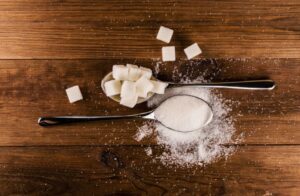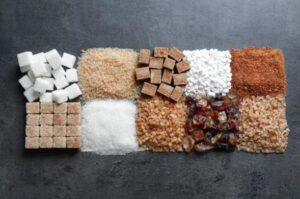Artificial sweeteners are a popular choice, but did you know that the first product was discovered by accident back in 1879? Saccharin has quickly replaced real sugar, becoming everyone’s favourite.Â
Nowadays, saccharin is an essential ingredient in the huge market of diet because it has zero calories. It could also combat the increasing threat of obesity and some heart issues. But there’s a catch.Â
Not everyone believes in the miraculous ingredient. Should we replace all sugar with artificial sweeteners, or there is more to consider?
Here is what you need to know.
Artificial Sweeteners Explained: How Do They Really Work?

Artificial sweeteners are nothing but a sweet taste of sugar, minus the calories. According to scientists, there are two types of artificial sweeteners, high-intensity sweeteners and sugar alcohols.Â
What’s the difference?
The high-intensity category includes aspartame and saccharin, while the sugar alcohols are somehow similar to real sugar but less readily metabolized.
Saccharin and aspartame are a lot of times sweeter than sugar.
How do they work?
Artificial sweeteners can have some metabolic effects due to their interaction with the bacteria that produce the gut microbiome.Â
Some sweeteners might vary in their effect on your body.
Are sweeteners safe to use?
After a prolonged series of tests and experiments (both on humans and animals), the FDA and EU approved sweeteners, declaring them safe to use.Â
Moreover, none of the approved artificial sweeteners has any link to cancer.
Artificial Sweeteners Can’t Stop Obesity

Even if sweeteners are calorie-free, unfortunately, they can’t stop obesity.Â
According to Professor Jennie Brand-Miller from the University of Sydney, artificial sweeteners are no silver-bullet to obesity issues. She said:
“[…] the prevalence of obesity and overweight have tripled in (the last 50 years) despite the popularity of low-calorie sweeteners and their ubiquity.”
Fortunately, artificial sweeteners are safe to consume and not linked to any issues. More research is needed to determine if sweeteners have some other effects on our microbiome or sugar cravings.












Leave a Reply